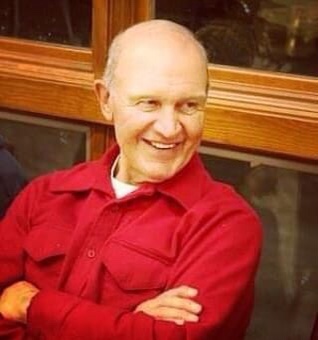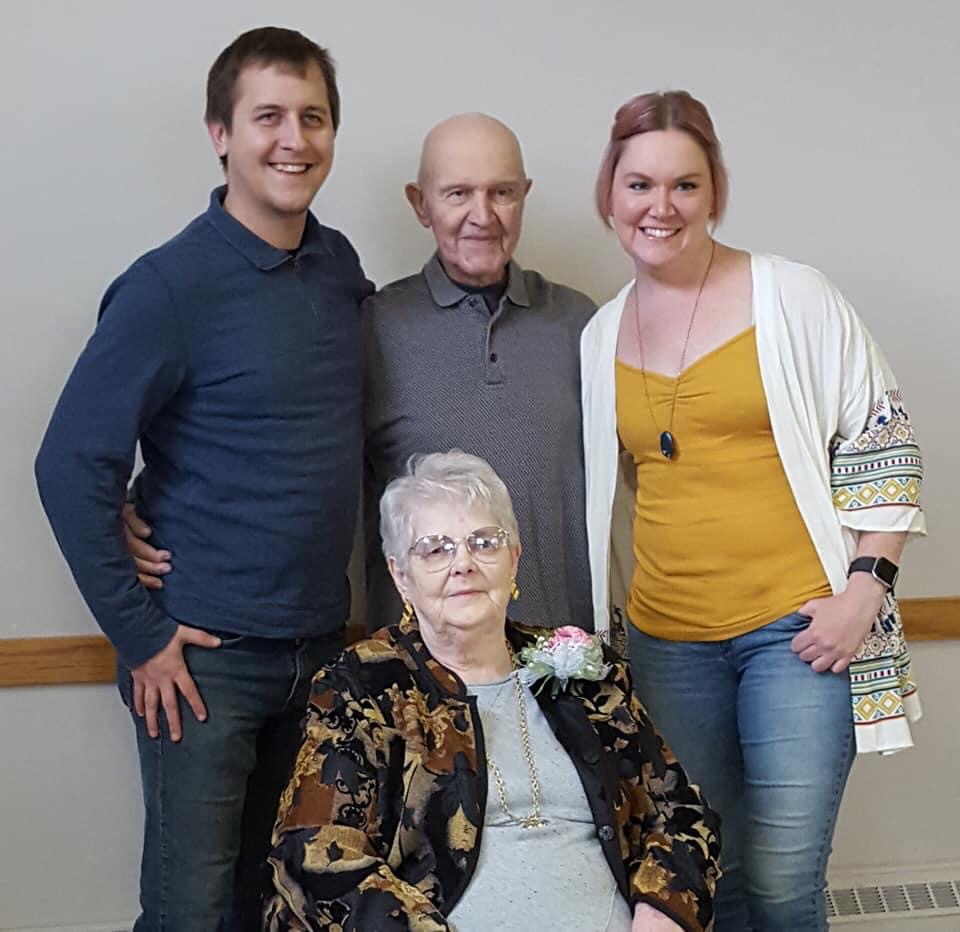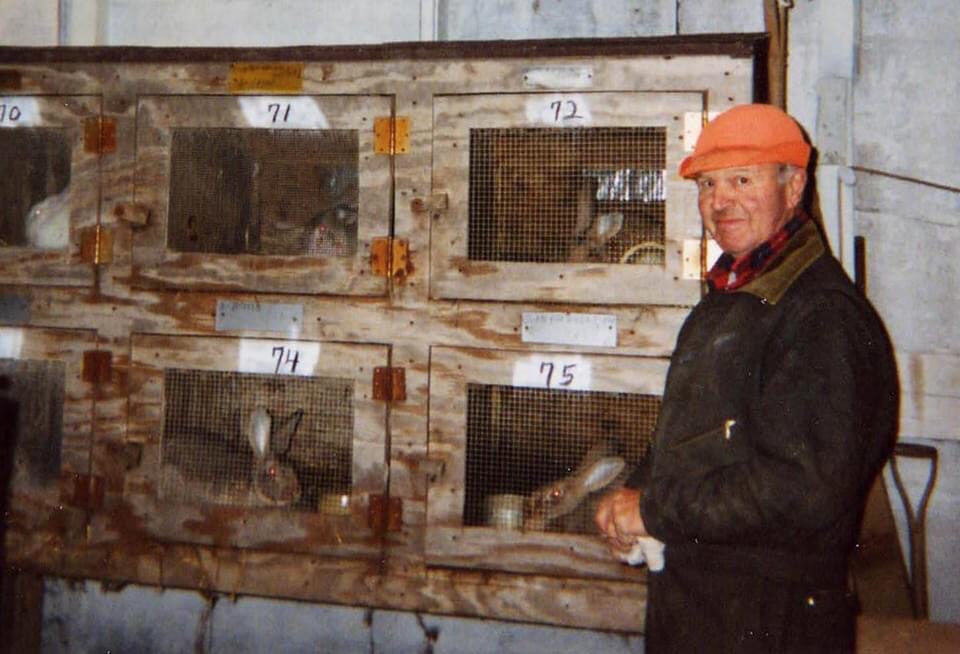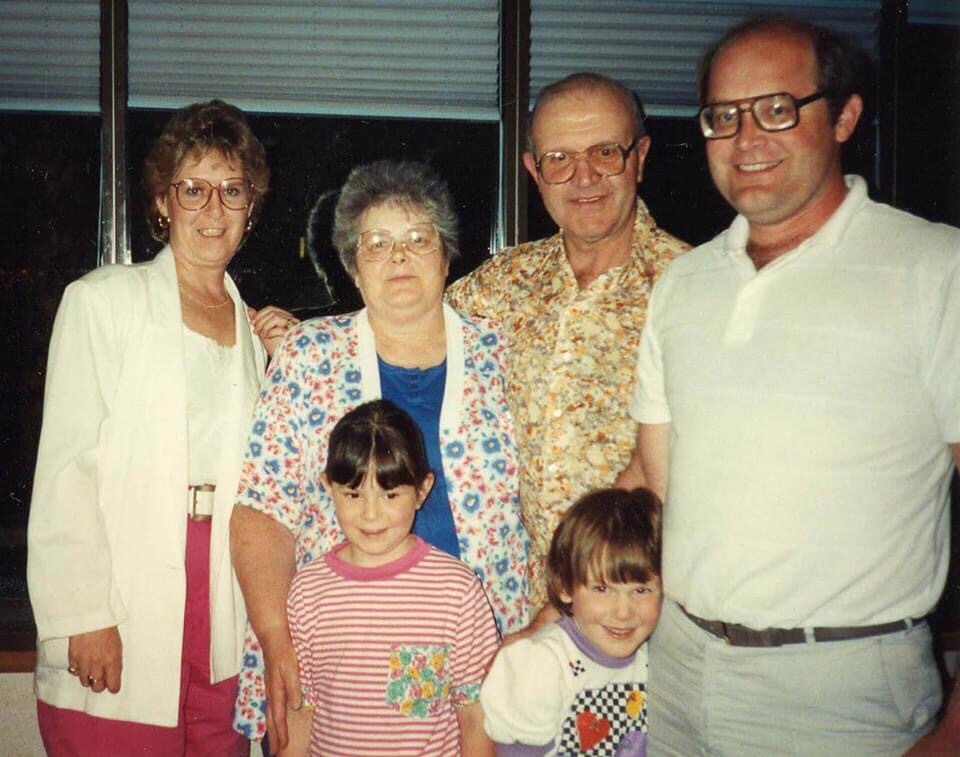I’m writing this from my front porch. I bought a new rocking chair set this year from the feed store; in a world of work-from-home and pandemics, it was money well spent.
It’s windy, but warm; I’m comfortable in a t-shirt and yoga pants, my official uniform of quarantine and Covid19. My dogs are outside with me, and the llamas and horses have chosen the pasture over the barn today. All of us, I think, know that cooler weather is closing in and are making the most of the last few breaths of warm before the chill.
For the first time, I am noticing that wind through the crisp, Midwestern, autumn leaves sounds a little like the sea. I can imagine standing at the edge of a pier right now, waves breaking upon the shore.
My wind chimes, a large set with deep, resonant notes, are moved along with the trees and provide notes that carry across the farm like an almost song.
<<<>>>
It has been a weird year. But you know that. Six months ago, I didn’t imagine that we would still be tucking away in October. That we would still be wearing masks and trying to stay a llama’s distance from everyone else.
I also didn’t expect the pandemic to come so close. Touching people and places I love.
John and I are self-quarantining for the second time since the virus hit the states. Both times, it’s been due to possible exposure. We don’t have any symptoms, but today, I got my 5th Covid test since the beginning of the pandemic.
It’s amazing what is starting to feel normal.
I remember, as a child, wondering what it felt like to live through big moments in history. But that was before 9/11. Before the financial collapse of ’08.
Before now.
Make no mistake, these are the days our grandchildren–if we have them–will ask us about. They will be writing papers about the pandemic and about the election. The climate.
I think, if I’m asked, I will say that Octobers began feeling warmer and that life was mostly the same as always until you came upon a moment that felt unreal, like when you saw the airliners parked en masse at major airports because almost no one was flying, or when you saw red and orange casted photos that your friends took while they evacuated ahead of the west coast wildfires.
I will tell them that when you got a cough or a fever you worried. Instantly. Even though it was probably just allergies or the flu or one of a thousand other illnesses that could cause those symptoms.
I will tell them that I went to some of the the protests and vigils for George Floyd, that we marched wearing masks to protect each other, and that, contrary to what some might try to tell you, there was a lot of love and grace in those places. That there was hope. I will tell them that we took to the streets during a national pandemic, as safely as we could, to try and make things better for the children coming up behind us.
And I think I will tell them that it was difficult to follow the news, because sometimes it seemed like everything was bad.
<<<>>>
I think a lot of us are feeling like the world is closing in a little too tightly right now.
I’m working through a book about connecting to our innate creativity, called “The Artist’s Way,” with a friend of mine. (It’s been really helpful, to be honest, and I highly recommend it.) The author, Julia Cameron, writes, “Survival lies in sanity, and sanity lies in paying attention.”
Right now, as we live through certifiably insane times, I can’t help but think that paying attention is more important than ever. However, to quote another author whose work I love, we need to be mindful to “Pay attention to what you pay attention to.” (Austin Kleon, Keep Going)
Today, I caught myself scrolling Facebook for way too long. It’s easy to do. We’ve created our own little echo chambers. Safe and comfortable. A place where arm chair activism can be mistaken for actual activity and outrage at the proverbial other is found with every click.
“…sanity lies in paying attention.”
I worry about the election, and I spiral. My anxiety gets triggered. I make the mistake of reading the comments section of a political article, and 45 minutes later, I’ve lost 45 minutes of my life AND my faith in humanity. I worry about the pandemic, for myself and others. Lately it’s been hard for me to pay attention to the right things.
But, still, I am learning…
A few weeks ago, I found one of my favorite llamas, Rabbit, sitting on the ground just outside the barn, unable to get up. He was older, near 17 I think, and one of my favorites.
When one of my older animals goes down and is unable to stand back up, especially outside, I don’t expect them to improve. I’ve seen it too many times, and have come to the conclusion that fighting the inevitable in an actively failing critter is unfair and unkind. Life, it turns out, is a terminal condition, and sometimes the kindest thing we can do for our critter friends is to make their last journey as comfortable as possible.
I called the vet.
Since Rabbit wasn’t in active distress, the vet slotted his euthanasia in for later that day. I hung up the phone, sat on a haybale, and cried.
On top of the pandemic and every other damn thing, I had already lost two animals in the few weeks prior to finding Rabbit unable to stand. An older horse, Candi, and an older llama, Llewis, all three with unrelated issues. And it hit me in that moment, the weight of loss. I cried for all three of them and for myself. And a little bit, I think I cried for all of us.
When the tears slowed, I made my way to the feed room and mixed up some grain for Rabbit. The sweet stuff with lots of molasses. My boy would go out full. I brought him some water and hay, deposited a bucket of sweet grain in front of him, and covered him in blankets against the chill. Then I sat with him, because I loved him and didn’t want him to spend his last afternoon alone. An hour or so later, my friend Katie joined us, bringing me hot chocolate; after that, Lauren came up to the barn. Both of them sat with me and Rabbit while we waited for the vet to come because they love me and didn’t want me to be alone.

The vet was later than he first estimated, but that was ok. It gave the sun time to move higher in the sky. For the shadows to retreat so that Rabbit could spend a final hour laying in the sun. I wanted it that way.
<<<>>>
Time and again, this place and these creatures remind me of what’s important in a culture that is always trying to redirect my (our) attention. Plans went out the window, because sometimes the most important thing is right in front of you. Not just Rabbit though. Not just saying goodbye to old friends, but the support that comes out to greet you when you need it. The friends who, time and time again, have proven to me that they have my back, whatever that looks like in that moment, even when it looks like sitting on the ground for hours on a chilly day waiting for the vet.
My friends, my creatures, and this place remind me of all the million ways that we belong to each other.
I posted a prayer from Nadia Bolz-Weber on my personal Facebook recently. The whole thing is beautiful, but one line struck especially deeply. She writes: “Remind us that for every tragedy that’s “newsworthy” there are a million kindnesses, and countless acts of love that go unreported.”
That’s what we need to pay attention to, not to the exclusion of the major events happening all around us, but as their complement. Neither tells the whole story of this crazy year.
<<<>>>
Today, after work, I listened to the wind through the autumn trees and realized that they sound like waves crashing on a beach, and I imagined that beach. I sat outside with my dogs, and I enjoyed the sun. (We all should take time to enjoy the sun.) I collected zinnia seeds from my garden, and I paid attention to the wild colors of the still blooming zinnias to my left and right.
I planted some beautiful things this spring, despite all of the insanity. Next year, I will plant some more, and I will work hard to pay attention to all of the beautiful things happening all around me.
***Both of the books mentioned in the post are affiliate linked, which means that if you buy them through these links, I will make a small amount of money. Two notes on that: first, it does not change your purchase cost, and second, I will never affiliate link to a product I don’t believe in. I love both of these books!






